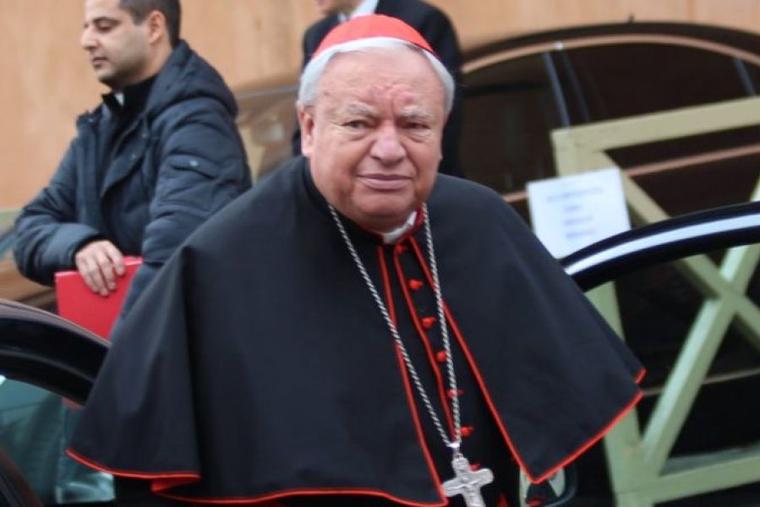- Feb 5, 2002
- 166,654
- 56,275
- Country
- United States
- Faith
- Catholic
- Marital Status
- Married
- Politics
- US-Others
‘There are lines that are always very clear, have been very clear in the faith and in the Tradition of the Church,’ he said.
Cardinal Juan Sandoval Íñiguez, archbishop emeritus of Guadalajara, Mexico, and one of the five signatories of the recent dubia sent to Pope Francis on matters of doctrine and discipline in the Catholic Church, assured that “a synod does not have doctrinal authority ... and the danger is that they give it to it.”
The word dubia — plural for a dubium — literally means, from the Latin, “doubts.” But another way of translating it is to see the word meaning “questions that seek clarification.”
In an Oct. 6 telephone interview with ACI Prensa, CNA’s Spanish-language news partner, the 90-year-old cardinal said that “doctrinal authority resides in the pope or in the worldwide episcopate together with the pope. A synod has only pastoral competencies; it must see to the best application of the Gospel to the faithful in pastoral care. It doesn’t have doctrinal authority.”
The Mexican archbishop emeritus signed the original July 10 and follow-up Aug. 23 dubia together with Cardinals Robert Sarah, prefect emeritus of the then Congregation for Divine Worship and the Discipline of the Sacraments; Joseph Zen Ze-kiun, bishop emeritus of Hong Kong; Raymond Leo Burke, prefect emeritus of the Apostolic Signatura, the supreme court of the Church; and Walter Brandmüller, president emeritus of the Pontifical Committee for Historical Sciences.
The dubia addressed concerns about the reinterpretation of divine Revelation, blessings for homosexual partners, and synodality being a “constitutive dimension of the Church.”
Additionally, the cardinals consulted Pope Francis about the possibility of priestly ordination for women and that repentance may not be necessary to receive sacramental absolution in confession.
Continued below.

 www.ncregister.com
www.ncregister.com
Cardinal Juan Sandoval Íñiguez, archbishop emeritus of Guadalajara, Mexico, and one of the five signatories of the recent dubia sent to Pope Francis on matters of doctrine and discipline in the Catholic Church, assured that “a synod does not have doctrinal authority ... and the danger is that they give it to it.”
The word dubia — plural for a dubium — literally means, from the Latin, “doubts.” But another way of translating it is to see the word meaning “questions that seek clarification.”
In an Oct. 6 telephone interview with ACI Prensa, CNA’s Spanish-language news partner, the 90-year-old cardinal said that “doctrinal authority resides in the pope or in the worldwide episcopate together with the pope. A synod has only pastoral competencies; it must see to the best application of the Gospel to the faithful in pastoral care. It doesn’t have doctrinal authority.”
The Mexican archbishop emeritus signed the original July 10 and follow-up Aug. 23 dubia together with Cardinals Robert Sarah, prefect emeritus of the then Congregation for Divine Worship and the Discipline of the Sacraments; Joseph Zen Ze-kiun, bishop emeritus of Hong Kong; Raymond Leo Burke, prefect emeritus of the Apostolic Signatura, the supreme court of the Church; and Walter Brandmüller, president emeritus of the Pontifical Committee for Historical Sciences.
The dubia addressed concerns about the reinterpretation of divine Revelation, blessings for homosexual partners, and synodality being a “constitutive dimension of the Church.”
Additionally, the cardinals consulted Pope Francis about the possibility of priestly ordination for women and that repentance may not be necessary to receive sacramental absolution in confession.
Continued below.

Mexican ‘Dubia’ Cardinal: A Synod ‘Does Not Have Doctrinal Authority’
‘There are lines that are always very clear, have been very clear in the faith and in the Tradition of the Church,’ he said.
